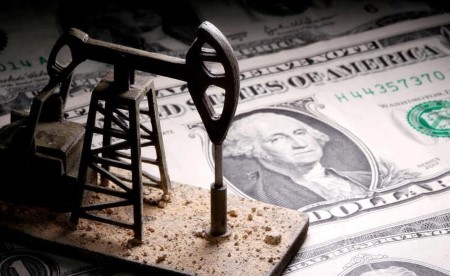




January Economic Update: Growth slows, prices rise
 DOWNLOAD
DOWNLOAD

Inflation Update: Up, up, and away?
 DOWNLOAD
DOWNLOAD

Quarterly Economic Growth Release: Growth takes on a slower pace
 DOWNLOAD
DOWNLOAD


Oil prices rebound after hitting lowest since 2021 on banking fears

NEW YORK, March 20 (Reuters) – Oil prices rebounded and rose over 1% on Monday after diving to their lowest levels in 15 months as the market worried that risks in the global banking sector could spark a recession that would sap fuel demand.
In volatile trade, Brent crude futures for May rose 82 cents, or 1.1% to USD 73.79 a barrel. US West Texas Intermediate crude futures for April gained 90 cents, or 1.4%, at USD 67.64 on the eve of the contract’s expiry. The more actively traded May futures rose 89 cents, or 1.3%, at USD 67.82 a barrel.
Oil prices rebounded as Wall Street posted gains. Earlier, Brent and WTI fell about USD 3 a barrel to the lowest since December 2021, with WTI sinking below USD 65 a barrel at one point. Last week, both benchmarks shed more than 10% as the banking crisis deepened.
Oil’s early slide occurred despite an historic deal in which UBS, Switzerland’s largest bank, agreed to buy Credit Suisse (CSGN) in an attempt to rescue the country’s second-biggest bank.
After the deal was announced, the US Federal Reserve, European Central Bank and other major central banks pledged to enhance market liquidity and support other banks.
“There’s a lot of fear-based movement (in oil prices),” Price Futures Group analyst Phil Flynn said. “We’re not moving at all on supply and demand fundamentals, we’re just moving on the banking concerns.”
The S&P 500 and the Dow Jones gained, helping lift oil prices off session lows on bets the Fed will probably pause on rate hikes on Wednesday to ensure bank sector troubles do not snowball. Traders and economists remain split on whether the Fed will raise its benchmark policy rate.
Some executives are calling on the central bank to pause its monetary policy tightening but be ready to resume raising rates later.
“Volatility is likely to linger this week, with broader financial market concerns likely to remain at the forefront,” ING Bank analysts said in a note, adding the looming Fed decision adds to uncertainty in markets.
Meanwhile, Group of Seven Nations are not likely to revise a USD 60-per-barrel price cap on Russian oil this week, two European Union officials and one official from a coalition member told Reuters on Monday.
The G7 was due in mid-March to revise the price cap put in place in December, but the officials said EU countries’ ambassadors were told by the European Commission over the weekend there is no appetite among the G7 for an imminent review.
A ministerial committee of OPEC and producer allies including Russia, together known as OPEC+, is set for a meeting April 3. The group agreed in October to cut oil production targets by 2 million barrels per day until the end of 2023.
(Reporting by Stephanie Kelly in New York; additional reporting by Noah Browning in London, Florence Tan and Emily Chow in Singapore; Editing by Paul Simao, Chris Reese and David Gregorio)
This article originally appeared on reuters.com





 By Reuters
By Reuters